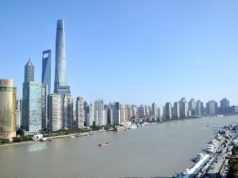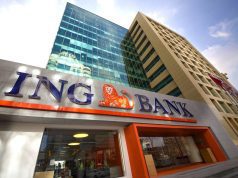BNP Paribas Asset Management Study: Higher Women & Diversity in 3,500 Invested Companies Compared to 17,000 Listed Companies
11th March 2022 | Hong Kong
BNP Paribas Asset Management has conducted a global study of the number of women on boards ahead of the 2022 AGM season, comparing 3,500 companies which BNP Paribas Asset Management had invested in against 17,000 listed companies in the Institutional Shareholder Services database. According to the study, BNP Paribas Asset Management invested companies have women representing 25% on the boards compared to only 18% of 17,000 listed companies. During the 2021 AGM season, BNP Paribas Asset Management had rejected the appointment of 37% of directors, mainly due to diversity issues. This growing level of opposition (up from 20% in 2018, 29% in 2019 and 36% in 2020) demonstrates the asset manager strong expectations for female board membership. Michael Herskovich, Global Head of Stewardship at BNP Paribas Asset Management: “Our voting policy now includes a target of 40% female board membership by 2025. Despite the inequalities in some regions, we should nonetheless be pleased with the progress made so far, which is testament to the effectiveness of our engagement activities, and maintain our dialogue with companies in order to provide support. As a committed shareholder our requirements are ambitious, although we are mindful of market realities. If we were to require a 40% minimum now, 39% of companies in Europe and just 3% in Asia would meet the criterion.” Orsolya Gal, Senior Stewardship Analyst at BNP Paribas Asset Management: “These geographical differences should be viewed within the context of the economic, socio-cultural and regulatory environment. In particular, companies with higher market capitalisations tend to integrate diversity issues more easily than smaller companies. Similarly, the existence of legal quotas, such as that required by the Copé-Zimmerman law in France, or more recently in Germany, also impacts the level of female board membership.” (AGM ~ Annual General Meeting)
“ BNP Paribas: Higher Women & Diversity in 3,500 Invested Companies Compared to 17,000 Listed Companies “
BNP Paribas Asset Management Study: Positive impact of dialogue and voting on female board membership

The study demonstrates the effectiveness of BNPP AM’s voting policy and shareholder dialogue:
- Women make up an average of 25% of the boards of the companies in which BNPP AM invests, compared to 18% for the broader universe of listed companies.
- Regional differences are considerable, with Europe, South Africa and Australia the most advanced in terms of board director parity, whereas Asia, South America and the Middle East are less diverse.
- Company size, country of incorporation and local regulations significantly impact levels of female board membership and are key factors for investors to consider.
Marked differences by region
As a source of financial outperformance and sustainable value creation over the long term, diversity is one of the pillars of BNPP AM’s Global Sustainability Strategy. In 2019, BNPP AM introduced specific AGM voting criteria on gender diversity, which have subsequently been strengthened, and vary according to region. For Europe, North America, Australia, South Africa and New Zealand, a minimum threshold of 30% female board membership applies, against 15% for Latin America, Asia, Middle East and Africa (ex. South Africa), regions considered less advanced in terms of diversity issues. Board diversity is also incorporated within BNPP AM’s proprietary ESG rating methodology.
Of the regions in which BNPP AM applies a 30% minimum level, female board membership for companies in which it is invested exceeded this level in Europe (34%), Australia & New Zealand (35%) and South Africa (33%), but averaged 27% in the US. For the broader universe of listed companies in the ISS database, none of these regions reached the 30% threshold.
In regions with a 15% minimum, female board membership of portfolio companies averaged 29% in Africa (ex. South Africa) and 16% in the Middle East, whereas neither Asia nor Latin America (both 12%) reached the minimum threshold. However, these low levels mask notable country variations, for example in South East Asia, where Malaysia, Singapore and India are more diversified than their neighbours. A similar pattern exists within the broader universe in emerging regions, where the average is 10% and only Africa (ex. South Africa) stands out, with an average of 22%.
A major focus of BNPP AM’s voting and engagement policy
During the 2021 AGM season, BNPP AM rejected the appointment of 37% of directors, mainly due to diversity issues. This growing level of opposition (up from 20% in 2018, 29% in 2019 and 36% in 2020) demonstrates BNPP AM’s strong expectations for female board membership.
In 2021, the most significant increase in BNPP AM’s opposition rate was in Asia, as a direct consequence of the introduction of the 15% threshold in the same year. In Japan, for example, BNPP AM opposed 57% in 2021, 20 percentage points more than in 2020. The same phenomenon was seen following the implementation of the ‘30% rule’ in Europe and North America, where opposition rates increased significantly between 2019 and 2020, up from 13% to 22% and from 36% to 51% respectively.
Alongside voting, BNPP AM also maintains its commitment to companies through direct dialogue with those that do not comply with its voting policy. In 2021, BNPP AM held discussions with 36 companies, 13 of which subsequently adopted changes in line with its voting policy requirements.
Investors therefore have a crucial role to play in increasing levels of female board membership, through both voting and increased dialogue with companies.
About the study
BNPP AM’s study analysed and compared the average percentages of female board membership for almost 3,500 companies in which it invests with more than 17,000 companies included in the Institutional Shareholder Services (‘ISS’) database. The study was carried out in August 2021, at the end of the AGM season, and covers 92 countries.
About BNP Paribas Asset Management
BNP Paribas Asset Management (‘BNPP AM’) is the investment arm of BNP Paribas, a leading banking group in Europe with international reach. BNPP AM aims to generate long-term sustainable investment returns for its clients, based on a unique sustainability-driven philosophy. BNPP AM’s investment capabilities are focused around five key strategies: High Conviction Strategies, Private Debt & Real Assets, Multi-Asset, Quantitative & Solutions (MAQS), Emerging Markets and Liquidity Solutions, with investment processes incorporating quantitative and fundamental analysis.
Sustainability is embedded within BNPP AM’s strategy and investment decision-making. Among the leaders in thematic investment in Europe, BNPP AM contributes to the energy transition, environmental sustainability and the promotion of equality and inclusive growth. BNPP AM currently manages EUR 537 billion of assets (EUR 669 billion of assets under management & advisory) and benefits from the expertise of around 500 investment professionals and over 400 client servicing specialists, serving individual, corporate and institutional clients in 69 countries.
Sign Up / Register
Caproasia Users
- Manage $20 million to $3 billion of assets
- Invest $3 million to $300 million
- Advise institutions, billionaires, UHNWs & HNWs
Caproasia Platforms | 11,000 Investors & Advisors
- Caproasia.com
- Caproasia Access
- Caproasia Events
- The Financial Centre | Find Services
- Membership
- Family Office Circle
- Professional Investor Circle
- Investor Relations Network
Monthly Roundtable & Networking
Family Office Programs
The 2025 Investment Day
- March - Hong Kong
- March - Singapore
- July - Hong Kong
- July - Singapore
- Sept- Hong Kong
- Sept - Singapore
- Oct- Hong Kong
- Nov - Singapore
- Visit: The Investment Day | Register: Click here
Caproasia Summits
- The Institutional Investor Summit
- The Investment / Alternatives Summit
- The Private Wealth Summit
- The Family Office Summit
- The CEO & Entrepreneur Summit
- The Capital Markets Summit
- The ESG / Sustainable Investment Summit

































